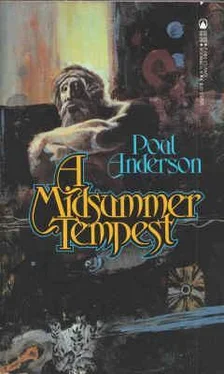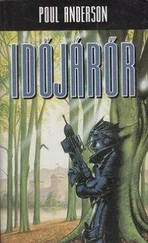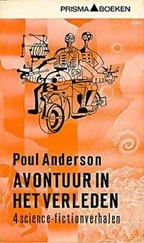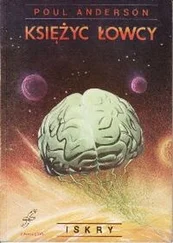Poul Anderson - A Midsummer Tempest
Здесь есть возможность читать онлайн «Poul Anderson - A Midsummer Tempest» весь текст электронной книги совершенно бесплатно (целиком полную версию без сокращений). В некоторых случаях можно слушать аудио, скачать через торрент в формате fb2 и присутствует краткое содержание. Год выпуска: 1984, ISBN: 1984, Издательство: Tor, Жанр: Фэнтези, на английском языке. Описание произведения, (предисловие) а так же отзывы посетителей доступны на портале библиотеки ЛибКат.
- Название:A Midsummer Tempest
- Автор:
- Издательство:Tor
- Жанр:
- Год:1984
- ISBN:0-812-53079-9
- Рейтинг книги:3 / 5. Голосов: 1
-
Избранное:Добавить в избранное
- Отзывы:
-
Ваша оценка:
- 60
- 1
- 2
- 3
- 4
- 5
A Midsummer Tempest: краткое содержание, описание и аннотация
Предлагаем к чтению аннотацию, описание, краткое содержание или предисловие (зависит от того, что написал сам автор книги «A Midsummer Tempest»). Если вы не нашли необходимую информацию о книге — напишите в комментариях, мы постараемся отыскать её.
A Midsummer Tempest — читать онлайн бесплатно полную книгу (весь текст) целиком
Ниже представлен текст книги, разбитый по страницам. Система сохранения места последней прочитанной страницы, позволяет с удобством читать онлайн бесплатно книгу «A Midsummer Tempest», без необходимости каждый раз заново искать на чём Вы остановились. Поставьте закладку, и сможете в любой момент перейти на страницу, на которой закончили чтение.
Интервал:
Закладка:
“Hell,” Caliban shuddered, “hu, hu, what’s chillier than hell?”
Rupert frowned at his man. “How often must I tell thee, I well know how little I have learned in this short while of poring over text arcane, complex, beset with ancient words and secret signs? By that same token, I cannot do much in those few spells deciphered—raise clairvoyance, call forth the simple spirits of a land, transport us quickly—that is all I know, if I know even that. Well, who can guess if he has read aright, unless he try? Tonight’s our first attempt, a minor one which, if done wrongly, should at least prove harmless. Ask Ariel. He’s helped me in my work, whilst Jennifer sustained me, and thou boused.”
“He’s right,” said the elf. “But hurry. We must have the moonlight.”
Rupert opened the book. Jennifer shivered. “My darling, art thou frightened?” he asked.
She raised her chin. “Not near thee.”
“Then hold the staff aloft while I read forth, and give it to me when I reach for it.”
Rupert began chanting: “Ye beings quick and unseen, yet as bright as this our fire of oak and ash and thorn, by smoke of herbs and mushrumps rising thence, wherein ye do delight, be drawn to me, and by these words inscribed in pentacle upon the dust from which my flesh has sprung, be bound to strict obedience, under God.” Jennifer passed him the staff. He wrote with its bronze ferrule while voicing: “ Adam Te Dageram, Amrtet Algar Algastna —”
The conjuration took a few minutes. At their end, Rupert closed the book, gave it to Jennifer, and called: “This is the task I lay on you: three visions, clear to our sight and hearing, as commanded. First show us in an overview that field in England, from which Ariel lately came to say a battle had begun there. Aleph. ”
The fire roared and lifted, became a tree-tall column, split into a ring wildly spinning through lurid reds and blues. Within its vast circle, as if through a window, appeared a scene.
It was the same night, beneath the same moon; perhaps even the wind was the same which drove clouds and whistled over acres. Water gleamed across the darkness of the land, canals, ponds, a river that lapped three sides of a conical height, tiered and skewed by nature, crowned by man with a tower now ruined, which rose sharply above neighbor hills and the flats beyond. Nearby bulked walls, roofs, steeples of a minor town. A few windows still glowed lonely.
Brighter were the camp-fires of an army, two or three miles outside. There guns could be seen, wagons, animals, tents of officers, gleams which must be off the pikes and armor of sentries.
“Oh, Glastonbury!” Will cried. “Oh, naught but Glastonbury! Aye, look: tha elven-haunted Tor—tha abbey—Wearyall Hill, where grows tha thorn o’ Joseph—Mine own hoame lies off yonderwards—my Nell—My Nell an’ every kid of ours, my loves, has war come by, an’ me not there for help?” He sank to his knees, buried face in knobbly hands, and wept like a barking seal.
The view swept nearer, as if the watchers swooped. Over ravaged leagues the revelation flew. Now it drew close to linger a moment, now fled from what it found.
Jennifer bit her fist, not to whimper with the agony of those sights, and huddled inside Rupert’s free arm.
Caliban squatted slack-jawed, sometimes lifting a paw as if to poke, never quite venturing it. Ariel escaped aloft and fluttered bat-fashion in the blast.
A heap of dead stiffened ashen under the moon. A drummer boy lay by himself in his own tangled entrails; the wind ruffled his fair locks, while ants marched over his eyeballs to his tongue. A horse kept screaming, the remnant of a man kept begging for water that there was none to give; neither could die. A cannon yawned uselessly, spiked; among the balls it had never fired was a shorn-off human head. Someone’s Bible lay in the mud, open but covered with blood and vomit. A cripple crawled along, trailing a shattered leg he had rudely bound up; the cold had gotten to him, his teeth clapped and frost was in his beard. The wind and the wounded sang Miserere.
“What has man done,” Ariel asked heaven, “that he deserves himself?”
“ ’Tis war, thus cruel,” Rupert told Jennifer, “though one can die worse, or live worse yet, a slave—Hold on! What’s here? The image closes on an army, camped—”
Several men sat around a fire, perhaps on call, perhaps too exhausted for sleep. Grimy, unshaven, a couple of them bandaged, they held palms toward coals and exchanged low words. They were outfitted in buff coats and heads were close-cropped. “They’re Parliament,” Rupert said starkly. “Our foe then holds the field.”
The ring contracted to a pillar, which sank to a common blaze. Jennifer uttered a cry, Caliban grunted in surprise, Will lifted his wet countenance, Ariel flew downward.
Rupert had stayed moveless. “So ends the vision, murky as our hopes,” he stated. “Well, we have two to go. Let’s on with it.”
The hovering sprite regarded him through red glow and shifty shadows. “Thou hast a hardy soul,” Ariel declared at length. “I am a soldier.” Rupert raised the staff. “Next show our chiefest enemies in council,” he ordered, “most recently, if not this instant. Beth. ”
Again they looked into a fiery circle. The Puritan camp appeared—evidently earlier in time, for some embers of sunset smoldered and the moon hunched low. Sight rushed past guards to a pavilion, and through its canvas. There it steadied.
Two men sat by lamplight, in conversation over a small table strewn with maps, dispatches, notes. One was a Roundhead officer, to judge from his bearing and russet coat: a strong-built person whose homely features grew mustache, chin-tuft, and warts. The other wore civil black, tall hat on knees, and appeared older though remaining trim. His skull was domed and bald; grayish eyes blinked in the sharp face.
Jennifer cried out again. “Mine uncle—guardian—”
“Shelgrave!” Rupert snarled. He recovered himself. “Fear him not. He’s far away; and thou’rt no more his care but mine, forever after.” He waved his companions to silence. “Hush. They speak.”
The officer—he looked like such an ordinary squire—said: “Of course you’re welcome, Sir Malachi. The service your manufacturies and railroads have done our cause do more than overbalance the escape of that prisoner.” He made a stern smile. “Anyhow, naught having happened yet about him, I suspect Hot Rupert lies long since cooled in a ditch, his throat cut by some fellow rogue—which, to be frank, spares us considerable trouble… Well, what brings you here, this far west and south, and on the day of battle?”
Shelgrave must have rehearsed his speech, for he got it out crisply. “What I have to say, General Cromwell, may sound feverish, yea, verging on heresy. Nonetheless, I beg you, remember from when we both sat in Parliament.” He leaned forward. “I’ll freely explain everything in fullest particulars, and confirm it by a clergyman of unquestionable reputation, who was directly concerned himself. He accompanied me hither, though at present he’s unfortunately carriage-sick. Together we’ll testify what witchcraft is Rupert’s. You know he was called a wizard, who kept familiars and—Well,’tis true, and more than true.”
“Go on,” said Cromwell quietly when he paused. “We’ll give you circumstantial accounts, General, of how Rupert ensorcelled my niece, my ward, into setting him free; how they received hex-rings from woodland demons; how Rupert and a confederate crossed this island, eluded hounds, and vanished; how they reappeared in Tunis, the guests of Papist nobles; and how again they’ve left, after commissioning equipment of unknown purpose but ill foreboding.”
Читать дальшеИнтервал:
Закладка:
Похожие книги на «A Midsummer Tempest»
Представляем Вашему вниманию похожие книги на «A Midsummer Tempest» списком для выбора. Мы отобрали схожую по названию и смыслу литературу в надежде предоставить читателям больше вариантов отыскать новые, интересные, ещё непрочитанные произведения.
Обсуждение, отзывы о книге «A Midsummer Tempest» и просто собственные мнения читателей. Оставьте ваши комментарии, напишите, что Вы думаете о произведении, его смысле или главных героях. Укажите что конкретно понравилось, а что нет, и почему Вы так считаете.











